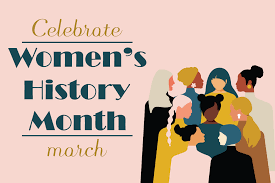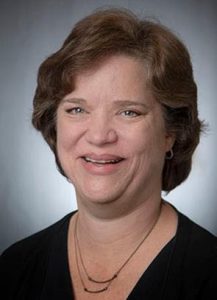
Ada Lovelace was the daughter of Lord Byron and a mathematician in the early 1800s who collaborated with Charles Babbage, often referred to as the “father of computers.” Lovelace envisioned uses beyond basic math and science for Babbage’s analytical engine. She wrote an algorithm for it, widely regarded as the first computer program. Despite her groundbreaking work, she faced many obstacles primarily rooted in societal beliefs about women studying sciences. Despite being barred from formal mathematics education at the university level, her visionary contributions laid the groundwork for modern computing.
Antoinette Brown Blackwell was America’s first ordained woman minister. Born in 1825, she began preaching at the age of 9, worked her way through Oberlin College by teaching school, and successfully advocated for permission to study theology. Sadly, she was denied official recognition as a trained theologian. Undeterred, she became a prolific writer and speaker, championing causes such as abolition and women’s rights. Although she eventually received her ministerial license, ongoing opposition led her to step away from the ministry for a significant period.
For me, it’s both fascinating and frustrating to delve into the history of extraordinary women achievers during eras characterized by limited women’s rights and overlooked narratives. We’ve only scratched the surface of their stories. Names like Lovelace, Blackwell, and countless others deserve recognition. So let’s honor Women’s History Month and acknowledge the need to uncover the lives of women from all backgrounds across various fields—science, art, culture, politics—and integrate them into our collective understanding of history. We need the complete narrative.
As Jeremy Knowles, former Dean of the Faculty at Harvard University, aptly puts it, “Every high school student knows that Isaac Newton discovered gravity, Charles Darwin discovered evolution, and Albert Einstein discovered the relativity of time. But when it comes to the composition of our universe, the textbooks simply say that the most abundant atom in the universe is hydrogen. And no one ever asks how we know that.” The answer lies with Cecilia Payne, the first person to earn a Ph.D. in astronomy from Radcliffe College of Harvard, after being denied the opportunity to pursue a degree at Cambridge University due to her gender. Her pioneering work in understanding the composition of the sun and her contributions to the study of astronomy, particularly on variable stars, cement her legacy as the first female professor of astronomy at Harvard.
Even renowned figures like Jane Austen faced challenges due to gender norms. Her novels were initially published anonymously, under the pseudonym “By A Lady,” reflecting the prevailing attitudes against women authors in the early 1800s. The stories of “Hidden Figures,” the female NASA scientists and engineers, including figures like Raye Montague, mother of one of our own, David Montague, further underscore the richness of women’s contributions throughout history.
As we celebrate Women’s History Month, join me in committing to seeking out and amplifying the stories of resilient, courageous women, both past and present, who have shaped our world. Their existence alone serves as an invitation to listen to their voices and acknowledge their contributions.

Joni Lee, Vice Chancellor of University Affairs
University of Arkansas at Little Rock
More about Women’s History Month
Women’s History Month honors and celebrates the struggles and achievements of American women throughout the history of the United States. American women have fought throughout our history to gain rights not simply for themselves, but also for many other underrepresented and disenfranchised groups in America. – Library of Congress